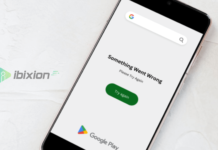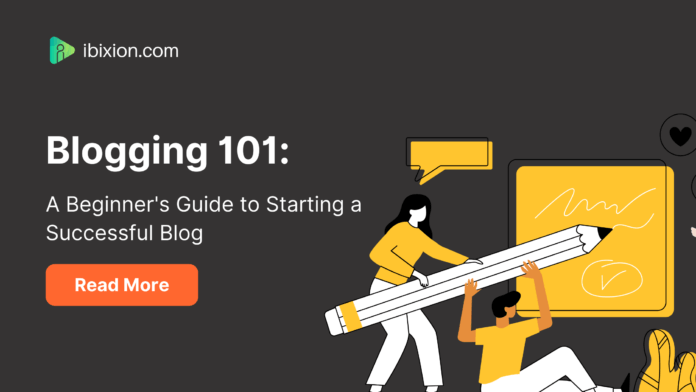So you want to start a blog? That’s fantastic! Blogging is a fun and excellent way to communicate your views and experiences with the world, and it can even become a profitable venture. This amazing Blogging 101 guide will cover everything that you need to know to start a successful blog, from choosing the right platform to optimizing your content for search engines. Let’s dive in!
Why Start a Blog?
Before we get into the steps, let’s talk about why you should consider starting a blog in the first place.
- Sharing your passion: Blogging lets you share your passion with others, whether it’s cooking, photography, travel, or any other interest. It’s an excellent way to connect with like-minded individuals who share your enthusiasm.
- Building an online presence: A blog is a great way to show yourself as proficient in your field, showcase your work, and create a personal brand.
- Making money: With the proper techniques, blogging can become a source of income through advertising, sponsored content, and affiliate marketing.
Choosing a Blogging Platform
Several blogging platforms are available, and choosing the right one is crucial for your blog’s success. Here are some popular options:
- WordPress: A versatile, open-source platform that powers over 40% of the web. It offers endless customization options and a vast library of plugins and themes.
- Blogger: A free blogging medium by Google, Blogger is easy to use and offers integration with other Google services.
- Medium: A popular platform for writers and readers, Medium focuses on high-quality content and boasts a large, built-in audience.
- Wix: A user-friendly website builder with a range of customizable templates, Wix is perfect for those who want a visually stunning blog.
Selecting a Domain Name
Your domain name is your blog’s online address, and it should be memorable, unique, and related to your niche. Consider using keywords related to your topic, and opt for a .com, .net, or .org extension for better credibility.
Picking a Web Hosting Service
A web host stores your blog’s files and makes them accessible to the internet. Look for a hosting provider with excellent uptime, reliable customer support, and scalable plans for your blog’s growth.
You try HostGator’s Shared web hosting for starters, offering a 30-day money-back guarantee.
FTC Disclosure: We receive customer referral fees from companies mentioned on this website. All data and opinions are based on our experience as paying customers.
Designing Your Blog
- Choosing a theme: Pick a theme that reflects your blog’s topic and style. Many blogging platforms offer free and premium themes, so take your time to find an excellent fit.
- Customizing your blog layout: Customize your blog’s layout to make it more user-friendly and visually attractive. Consider adding a navigation menu, sidebar widgets, and a responsive design for mobile users.
Creating Quality Content
- Know your audience: Understanding your key audience is essential for creating content that is relevant to them. Research their interests, demographics, and preferences to tailor your content accordingly.
- Write compelling headlines: Your headlines should be attention-grabbing and intriguing to encourage readers to click and read your content.
- Use proper formatting: Break your content into short paragraphs, use headings and subheadings, and include bullet points and pictures to make your content more readable and engaging.
Optimizing Your Blog for SEO
- Keyword research: Identify relevant keywords your target audience is searching for and include them in your content, headings, and meta tags.
- On-page optimization: Optimize your blog posts for search engines by having your target keywords in the title, URL, and meta description. Also, ensure your images have descriptive alt tags.
- Off-page optimization: Build quality backlinks to your blog by guest posting, participating in forums, and engaging with influencers in your niche.
Promoting Your Blog
- Social media: You can share your content on social media websites like Facebook, Twitter & Instagram to reach a broader audience.
- Guest posting: Write high-quality guest posts for other blogs in your niche to gain exposure and drive traffic to your site.
- Networking: Engage with other bloggers, influencers, and readers to build relationships and increase your blog’s visibility.
Monetizing Your Blog
- Affiliate marketing: Promote products or services related to your niche and earn a commission for every sale through your referral link.
- Sponsored posts: Collaborate with brands to create sponsored content that showcases their products or services in exchange for payment.
- Display advertising: Join an ad network like Google AdSense to display ads on your blog & earn revenue based on impressions or clicks.
Tracking Your Blog’s Performance
Regularly monitor your blog’s performance using tools like Google Analytics to track traffic, user engagement, and other valuable metrics. This info will assist you in making data-driven decisions to improve and grow your blog.
Conclusion
Initiating a successful blog takes time, dedication, and a willingness to learn. By following the steps sketched in this guide, you’ll be well on your way to building a blog that resonates with your target audience and stands out from the competition. Remember to stay consistent, keep learning, and don’t fear taking risks. Happy blogging!
FAQs
- How long does it take to start earning/ making money from a blog? It varies for every blogger, but it normally takes several months to a year to start earning significant income from your blog.
- How often should I publish new content on my blog? Aim to publish new content at least once or twice a week. Consistency is key to building an engaged audience.
- What is the best way to drive traffic to my blog? A combination of SEO, social media marketing, guest posting, and networking will help drive traffic to your blog.
- Do I need technical skills to start a blog? While basic technical skills are helpful, most blogging platforms are user-friendly and do not require advanced knowledge.
- How can I improve my blog’s search engine rankings? Focus on creating high-quality, keyword-rich content, optimizing on-page elements, and building quality backlinks to improve your blog’s search engine rankings.





































![Best Gaming Keyboards Under ₹2000 in India [2025 Edition]](https://ibixion.com/wp-content/uploads/2025/05/universal_upscale_0_e88e4495-cad7-4ea6-a771-51cbbabcf328_0-324x160.jpg)



![Best ways to Watch Cartoons Online: Free & Paid [Website List] watch cartoons online](https://ibixion.com/wp-content/uploads/2020/05/small-boy-with-down-syndrome-watching-cartoon-on-tv_t20_oRlole-1-100x70.jpg)




![BombSquad Promo Code [400* Free Ticket] Latest & Updated](https://ibixion.com/wp-content/uploads/2017/05/bombsquad-promo-code-main-100x70.png)